“It’s a story set in the past, but it reflects fears I have about our continent today”: Christian Schwochow on Munich: The Edge of War
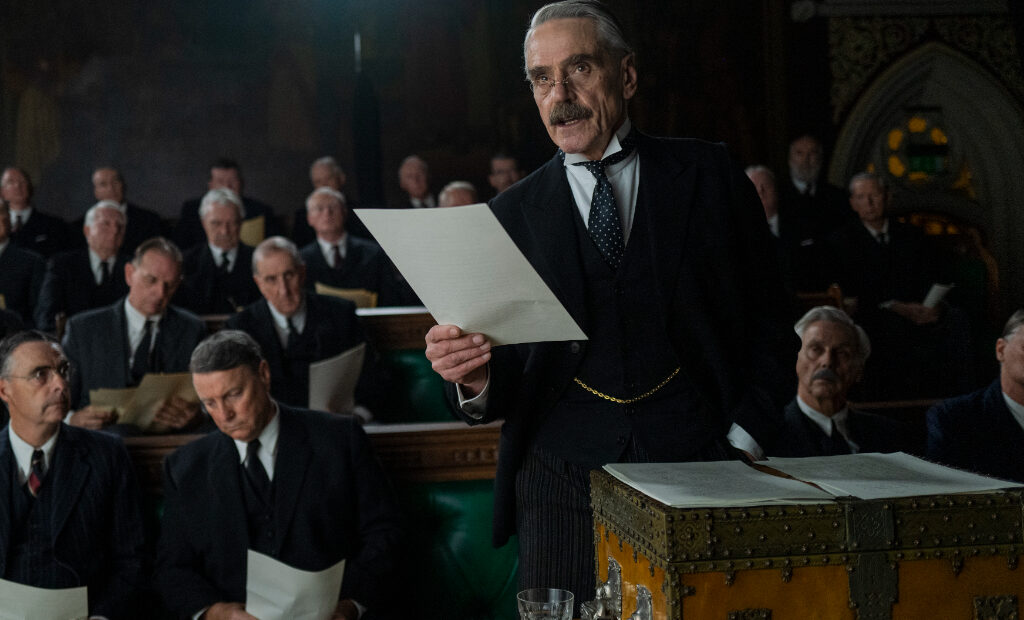
You might think the world is now fully saturated with film, TV and literature centring on the Second World War. But Christian Schwochow’s Munich: The Edge of War proves that’s yet to be the case, with the Netflix film able to shed new light on the period of history; in particular, the years before war broke out.
Adapted from a 2017 Robert Harris novel of the same name, it follows two Oxford University friends who find themselves divided by their political views and eventually working across country divides, with Hugh Legat (George MacKay) becoming a British civil servant and Paul Hartman (Jannis Niewöhner) a German diplomat. In the run-up to a meeting involving Hitler and then-British Prime Minister Neville Chamberlain regarding the Führer’s plan to invade Czechoslovakia – the 1938 Munich Conference – Legat and Hartman must form an unlikely alliance to thwart Hitler’s true plans for Europe from unfolding.
What makes the movie stand out is not just that it brings the fore a little-known piece of the puzzle that led to the eventual defeat of the Nazis, but that there are no great battles, examples of overt heroism or scenes of the horror of war on display. Rather, all the tension and thriller aspects of the story are cleverly brought out by emphasising the complex and protracted nature of politics and diplomacy, with the looming spectre of what we now know was lurking on the horizon imbuing each moment with importance and gravitas.
A fantastic on-screen chemistry between Niewöhner and MacKay as two equally idealistic and ambitious but contrasting in character young men helps carry the narrative, which is further bolstered by screen legend Jemery Irons’s apt turn as Chamberlain and Ulrich Matthes’s bone-chilling Hitler. Through slick and absorbing storytelling, the movie not only gives a fresh perspective on the past but serves as a warning to the present to not allow our democratic system to fail, as well as demonstrates how individual action and responsibility can make a genuine difference.
The Upcoming had the pleasure of speaking with the German director, whose previous work has included episodes of season three of The Crown and Je Suis Karl about the rise of far-right ideology, also starring Niewöhner. Schwochow shared why he wanted to adapt Harris’s novel for the screen, the research that went into recreating the era and the relevance he thinks the story has today.
Hi, Christian, a pleasure to be able to speak to you about this incredible film, Munich: The Edge of War. This period of history has been revisited many a time in different forms, but here, you seem to have found yet another fresh perspective. When did you first come across Robert Harris’s novel and what was your motivation to adapt it for the screen?
When I was approached to do this film, I felt like, “Okay, I’ve seen so many films about the Second World War.” But then I thought, “Well, this is just before the Second World War started. This is a particular moment in history in Europe, just before the war.” And there’s was so much tension, there was so much insecurity, with people thinking, “How do we deal with a person like Hitler? How do we deal with this political situation?” And when I read it, it felt like, “Wow, this is something I feel today, even though there’s no Hitler in Europe at the moment”. We feel so safe, we feel like we have Europe, we have the European Union. But also, democracies can fall apart so easily. So I felt, “Here’s a story set in the past, but it reflects fears that I have about our continent today”. Do you understand what I mean?
Yeah, absolutely. You recreate the Germany and Britain of the 1930s in beautifully executed, expansive period-set scenes, which I know is very difficult – and expensive! – to achieve. How much of the historical detail did you have to research and what kind of preparation went into making the film? How much could you rely on the material in Harris’s book?
Robert’s research is very profound. But of course, I also worked with a research team. Every scene in the film you see has come off the back of a large amount of research. We didn’t try to recreate a Germany or a Britain that you would usually see in a film about this period but instead invested a lot of time in portraying the look and feel of how it must have felt for a normal person to live in those in those circumstances back then. So there’s so much detail that we researched and portrayed in every single scene, actually.
Like the best historical films, you’re dealing with huge subjects with a lot of complexity, but the way in for the audience is very much through individual characters and their personal relationships. It therefore must have been very important to get your casting right. How did you decide on George Mackay and Yannis Niewöhner for your central characters? And of course, this great acting legend that is Jeremy Irons for your Prime Minister?
It’s very hard to describe actually. Because you have a casting director in the UK, a casting director in Germany, and you have just endless sessions discussing who would be right to be your characters. And then you speak to certain actors – because it’s the pandemic – on Zoom. And, you know, Yannis Niewöhner and I, we had just done a film before, Je Suis Karl. Then Jeremy Irons is a good friend of Robert Harris, so he involved himself because he was a fan of Neville Chamberlain. He called up Robert and said, “Whenever there’s a film made out of this novel, please tell the filmmakers I would love to play Neville Chamberlain”. And that’s how we got in touch. George MacKay and I, we never met. George was an idea of my casting director Simone. So I had a Zoom call with George and he said, “Look, I would love to do this film”. And I said, “You’re such a big, great actor, I can’t ask you to do an audition – you’re too famous!” He said, “Well, let me do a tape for you. Let me record a couple of scenes”. And so he did that. And he sent them to me, and he was just amazing. So yeah, it was like a big miracle how this cast got together. And then, it’s funny, because we were one of the first big productions in Europe to shoot in the pandemic a year ago, quite a few actors were available. Like the German cast: Sandra Hüller, August Diehl, those people are usually really, really busy. But they happened to be available. So I was in a position to offer parts to people who would usually be incredibly busy. As a German saying goes, we had a shining star above this project.
What is it like to shoot a film like this in Germany? Because, of course, although it deals with the past, in some respects, it’s still the recent past. Did you encounter any difficulty or sensitivity in revisiting this period once again and filming it on location?
No, not at all. Actually, it took us a few days to get permission to shoot in the Führerbau in Munich, which today is the University of Music. But actually, no, we didn’t have big problems shooting our scenes in Germany, and there were no reservations. I think there’s still a big feeling of responsibility that we need these films to make sure people will always be aware of what the history of our country is.
There are plenty of movies that deal with Nazi Germany that get very close to the horror of war, the horror of the camps. But in Munich, as it takes place on the brink of WWII, it’s only hinted at. It seems much of the tension in the film comes from the audience being more than aware of what’s coming.
I tried to show the lightness of the year 1938. Because the camps were not established back then. How can I put it: the characters just didn’t know what was going to happen. That was something I tried to incorporate into the film. It’s so easy to judge and to show things from today’s perspective. But the horror of the concentration camps was not established until 1939 and in the 40s. So I kind of struggled and tried to work out scenes so the characters would have a feel for what might happen, but would also be naive in a certain way. Does that make sense?
Yes, definitely. You mentioned at the beginning that the story made you think of where we are today political. How do you think historical films such as these can have a resonance in our contemporary era? Do you hope your film can serve as a warning of some kind to recognise signals in our political sphere that we might be losing our handle our democracy for example?
Yeah, I would just love to encourage young people to be engaged in politics, to follow the news, to be involved in discourses and just, you know, use their voice. I can’t teach them how to use their voice. I just want to encourage them to be political. If I can encourage them with a film like this to go into debates, that’s all I want.
Can you quickly tell us what you might be working on next? The Crown again I believe?!
Yes, I’m currently working on The Crown season five. I’ll start shooting in two days. It’s The Crown, it’s the 90s, and I’m doing two episodes. Without giving away too much, I’m doing a lot of Princess Diana!
Very exciting. I think people really have their breaths held to see Elizabeth Debicki in that role. I imagine it’s going to be extraordinary. Glimpses of her in that revenge dress already blew up Twitter…
I can share: she is incredible. She is amazing.
Having just made a film through the pandemic, how do you see the health of the cinema industry right now? It’s obviously been a very difficult time, but there’s still seems to be a huge appetite out there for watching movies.
It’s so difficult to answer this question. You know, Munich is going to come out here in the UK in two days. I personally haven’t been to the movies for a couple of weeks, but I’m actually quite desperate to go back. I do believe that cinema will remain a place where people really want to go. But I do feel that we, the filmmakers, have to reflect on what kind of stories are really made for cinema, for the cinema theatre. So there might be a shift from our side. I can’t tell you now what it is. So I do believe people will still want to go to the cinema. But I have a feeling the stories we tell for cinema theatres might have to change as well.
And in the meantime, you have amazing platforms like Netflix to show films like Munich which people from all over the world can enjoy at the time, from wherever they are. So that’s also a blessing.
Yes, absolutely.
It’s been an absolute pleasure to speak to you! Thanks so much and congratulations on your wonderful film. Best of luck with the release.
Thanks a lot.
Sarah Bradbury
Munich: The Edge of War is released on Netflix on 21st January 2022. Read our review here. Watch our interview with lead actor Jannis Niewöhner here. Watch our interview with Schwochow for Je Suis Karl here.
Watch the trailer for Munich: The Edge of War here:

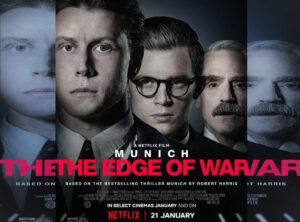

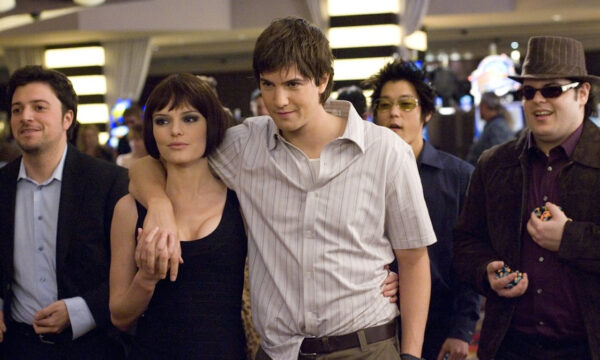
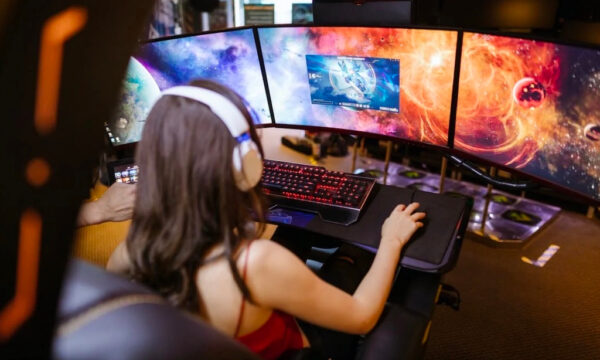
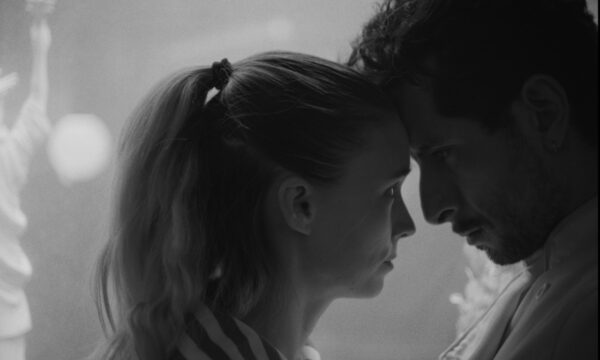

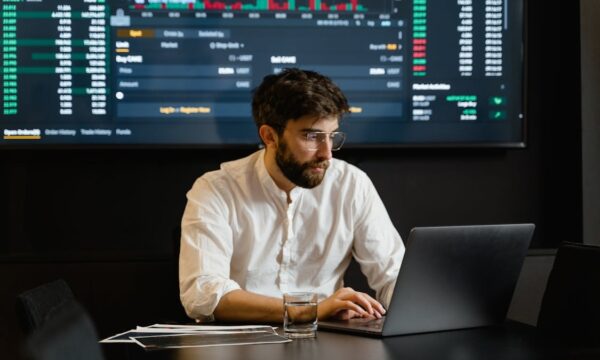
















Facebook
Twitter
Instagram
YouTube
RSS